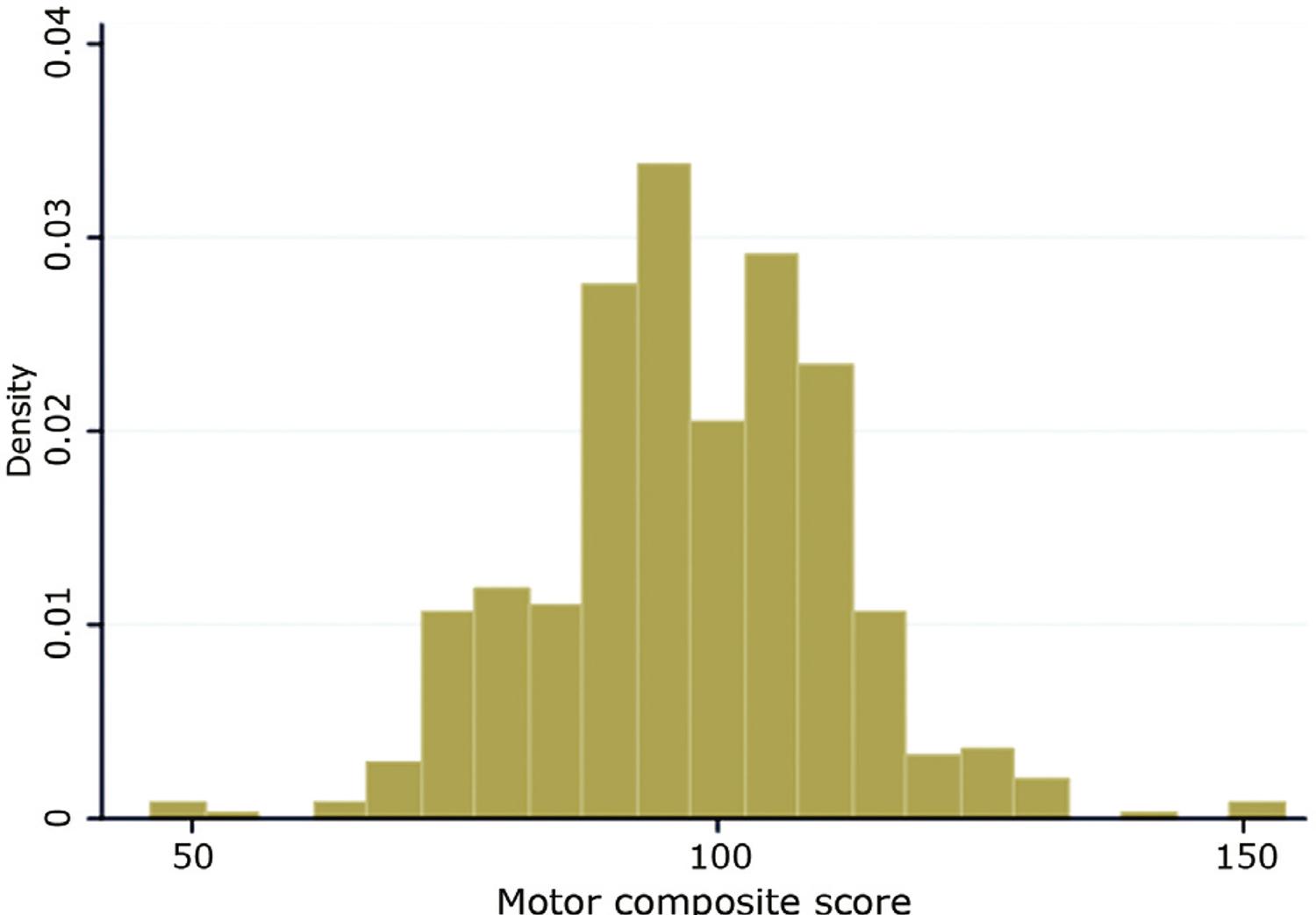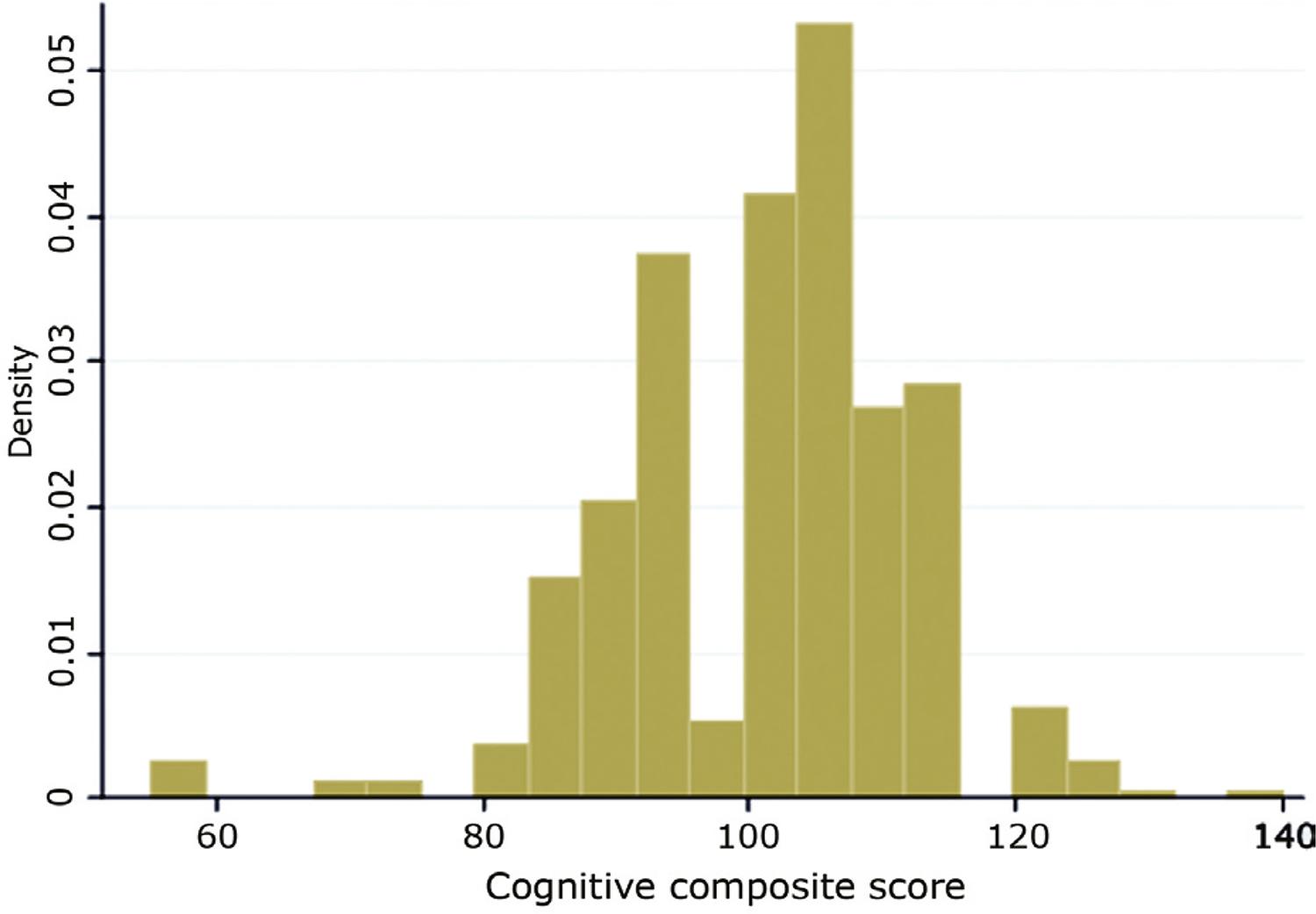Abstract
Introduction
The effects of socioeconomic disparities on cognitive development tend to emerge early in infancy and to widen throughout childhood, and may perpetuate later in life. Although the study of how poverty affects early childhood has increased in the last 20 years, many of the effects remain largely unknown, especially during the first year of life.
Aim
To investigate the influence of socioeconomic status (SES) and maternal education on infants’ language, motor and cognitive development.
Methods
The cognitive, language and motor skills of 444 infants aged 6 to 9 months selected from a poor neighborhood in São Paulo, Brazil, were evaluated using the Bayley Scales of Infant Development. A questionnaire on socioeconomic background was administered to the participants’ families.
Results
A positive association was found between SES and infants’ performance on language and motor scales. Additionally, higher maternal education was associated with higher language and cognitive scores.
Conclusion
Our findings indicate that SES effects are detectable very early in infancy. This result has implications for the timing of both screening and intervention efforts to help children overcome the consequences of living in poverty.
Development; Bayley; infants; risk factors; socioeconomic status; maternal education



